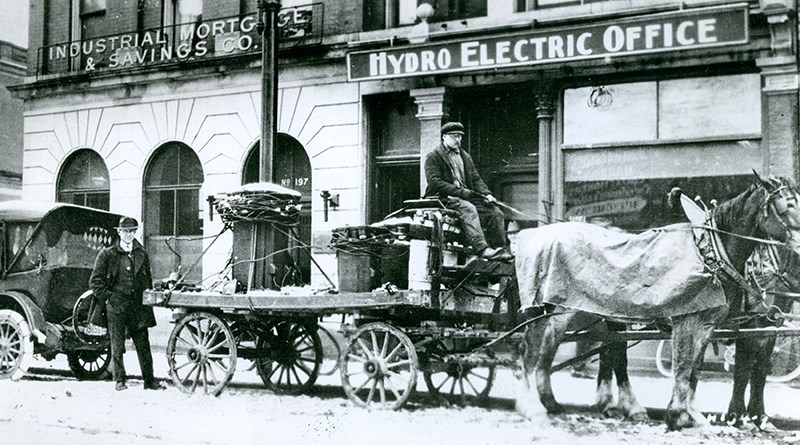Phil Egan
Described as both a farce and a cruel travesty of justice, the story of J.E.B. Phelps dominated the headlines for months in Sarnia during the 1920s.
It involved the father of a Sarnia historian (E.B. Phelps, author of Sarnia: Gateway to Bluewaterland) and brothers George and James Crawford, one the mayor and the other a former mayor of the city.
The origins of the feud are unclear, but one thing is certain — there was bad blood between James E.B. Phelps, manager of Sarnia Hydro Electric, and former mayor James Crawford, who was elected chairman of the Sarnia Hydro Commission in 1920.
Crawford later claimed Phelps had publicly opposed his election to the commission. Phelps denied it.
In 1920, when Phelps purchased a storefront office for Sarnia Hydro Electric, Crawford was openly critical.
Then Phelps made a critical mistake.
The National Engineering Company manufactured milk condensers, air blowers and compressors in a building leased from Phelps for the electric company. Phelps also became a director of National Engineering. In 1921, the company managed to accrue rental arrears owing to the hydroelectric company totalling $3,500. Phelps, knowing National Engineering was making expensive improvements to the building, didn’t become alarmed.
But neither did he report the growing debt to the hydro commissioners.
In late September of 1922, as National Engineering began to struggle, Phelps’ error became public. James Crawford accused Phelps of a conflict of interest, arguing Phelps’ position as a director of National Engineering had resulted in him concealing the growing liability to the hydro-electric company.
Phelps responded that National had made $7,000 in improvements to the building – an amount twice the size of the overdue rent.
Crawford fired Phelps – an action vocally supported by his brother, Mayor George Crawford.
Phelps fired back with an angry letter to the editor of the Canadian Observer. As the dispute simmered, the town picked sides. Many supported Crawford but public petitions began to circulate calling for Phelps’ reinstatement.
The dispute grew bitter. Phelps accused Crawford of attempting to reduce Phelps’ salary to cover staff pay raises that Phelps had recommended. Crawford accused Phelps of ignoring his duties while participating in a Chamber of Commerce canvassing project.
As things raged on Phelps formally applied for reinstatement. A board of inquiry was assembled to investigate.
Finally, in February of 1924, 17 months after the story hit the headlines, the board of inquiry found Phelps had been unjustly sacked and ordered him returned to his job as manager of Sarnia Hydro Electric, closing what had been a very public battle.
Got an interesting tale? Contact Phil Egan at [email protected]
